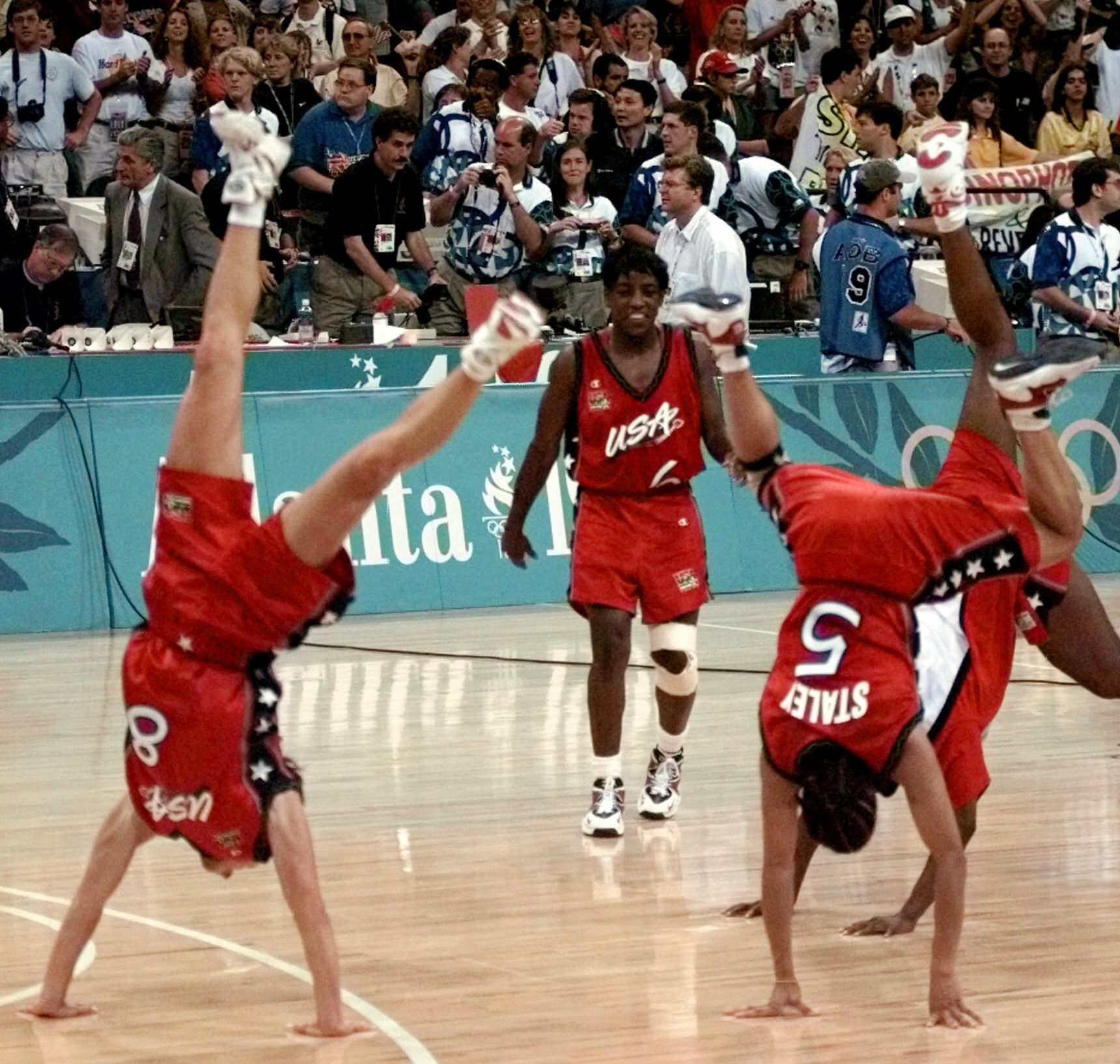The opening ceremonies of the Summer Olympics are tonight in Paris, and my thoughts immediately go back to the only time I covered the Olympic Games, 1996 in Atlanta.
My first thought: Has it really been 28 years?

Yes, it has, but in so many ways it seems as if it were only last week. It remains one of the highlights of my more than half century writing about sports. The memories are vivid, poignant and many. There was Muhammad Ali lighting the Olympic flame with trembling hands. There was then-Hattiesburg resident Angel Martino, a swimmer, winning the first American medal and then three more. There was the bomb that went off in Centennial Park, adjacent to Olympic headquarters, putting a 24-hour hold on the Olympics and causing this sports writer to work a 36-hour shift. There were Skip Bertman and Ron Polk coaching Team USA baseball, puffing on huge Honduran cigars all the while. There was a human blur named Michael Johnson who shattered records in the 200- and 400-meter sprints. There was all that and so much more.
Most memorable of all, there was Ruthie Bolton and, by extension, the Rev. Linwood Bolton, Ruthie’s daddy. For me, they became the best story of those Olympic Games and gave this Mississippi reporter more than he ever dreamed he could write home about. You could not make their story up.
Ruthie, from the tiny south Mississippi town of McLain, was the point guard for the gold medal-winning USA women’s basketball team that pretty much stole the Olympic spotlight from Michael Jordan, Charles Barkley and the USA men’s Dream Team. The American women also included such stars as Lisa Leslie, Sheryl Swoopes and Rebecca Lobo, but little Ruthie Bolton was the team’s engine. She made them go, both offensively and defensively. Her story was fascinating and as Mississippi as it gets.
Start with this: Ruthie was the smallest of the 20 children born to the Rev. Linwood Bolton and his wife, Leola, who lived on a farm near McLain in Greene County, 34 miles south of Hattiesburg. Leola Bolton had died of cancer the year before the Olympics. Linwood, who at the age of 73 still pastored four south Mississippi churches, watched the first week or so at home on TV, then came to Atlanta for the last week of the games. Meeting and interviewing him was a highlight. He had lost the love of his life and much of his hearing, but his handshake was firm and he still possessed the sunny, effervescent personality of a much younger man.

“Yes,” he answered, he was “mighty, mighty proud of Ruthie. The rest of them are bigger, but little Ruthie was a little different from the rest,” Rev. Bolton said. “She was the quiet one, but she had a fire inside. Ruthie was the fighter. She was always so determined. When she had a goal, nothing was going to stand in the way.”
On the Bolton farm, the family grew corn, peas, beens, greens, okra and tomatoes. They raised cattle, hogs and chickens. Everyone pitched in with the chores, and, said Linwood, Ruthie always chose the most difficult work of all.
All that hard work on the farm somehow translated to the basketball court. For Team USA, Ruthie always got the most difficult defensive assignment. She nearly always defended the other team’s best player and she led the team in steals. Offensively, she ran the show, scoring 13 points a game and leading the team in assists.
In the championship game against Brazil, played before 33,000 in the Georgia Dome, Ruthie scored 15 points, passed out five assists and made five steals. On Team USA’s first offensive possession, she swished a 3-pointer from four steps beyond the 3-point line. More importantly, she was given the assignment of covering “Magic Paula” Silva, Brazil’s legendary star, who scored only seven points and made her only field goal when Ruthie was taking a breather.
Afterward, I asked Ruthie how she did it. Her answer: “I was in her pants, that’s how. I was all over her. If she had gone to the bathroom, I was going with her.”
It reached the point where a Mississippi sports writer – covering a Mississippi woman in the biggest sporting event in the world – felt sorry for the star player from Brazil.
The medal presentation afterward was one never to be forgotten. There was Rev. Linwood Bolton, holding up a photo of his deceased wife, while his daughter, watching, smiled through tears, a gold medal draped around her neck while the Star Spangled Banner played. Again, you couldn’t make this up.
Over the next couple weeks, many compelling Olympic stories will unfold on the courts, fields and in the pools of Gay Paree. None will be more compelling than what happened 28 years ago when Ruthie Bolton, the 16th of 20 born to Linwood and Leola Bolton, displayed more grit and will than imaginable.
The rest of the story? Rev. Bolton died in 1998. Ruthie went on to play the first seven seasons of the WNBA’s existence, was a two-time all-star and has been inducted into both the Women’s Basketball Hall of Fame and the Mississippi Sports Hall of Fame. She has long since retired and recently has moved back to McLain where her daughter, Hope, will play basketball as a ninth grader this next season.
And Ruthie’s best memories of those Atlanta Olympics?
“On the floor, it had to be guarding that girl from Brazil in the gold medal game,” Ruthie told me. “Off the floor, just being supported by my family, all of them. I mean, have you ever gone into an Atlanta restaurant and asked for a table for 28?”

